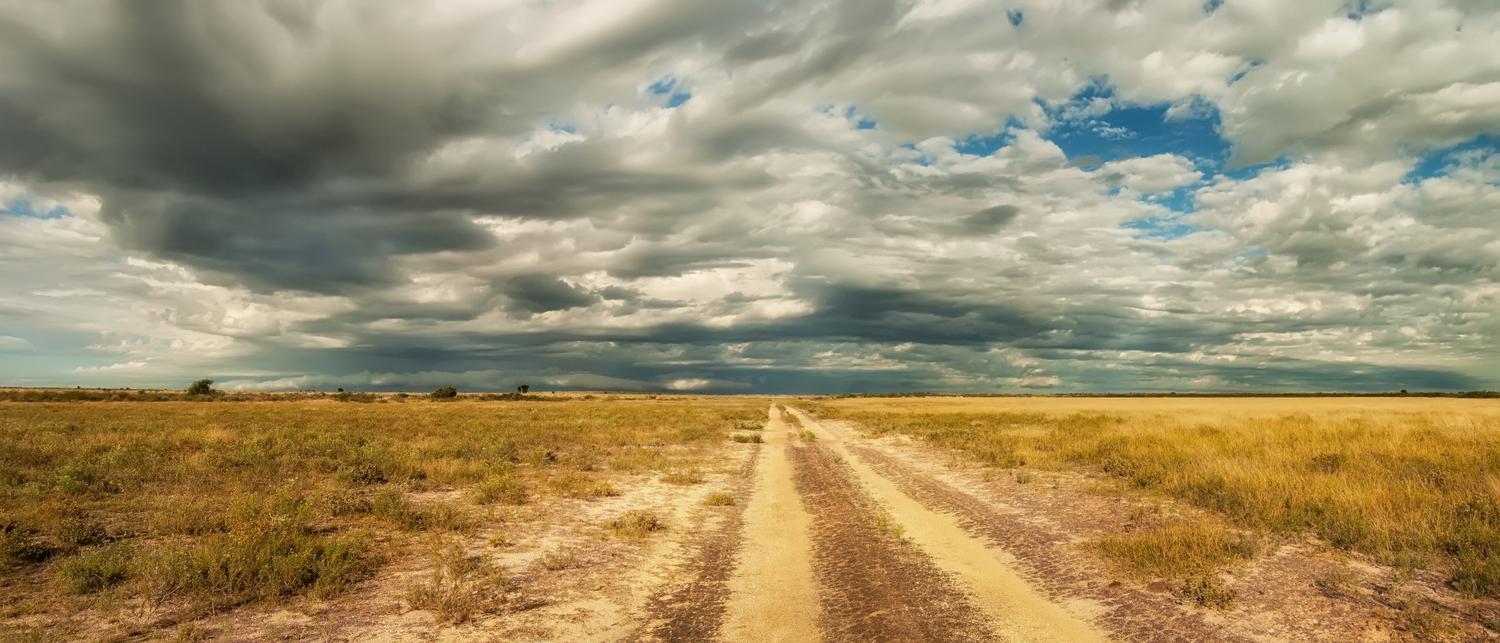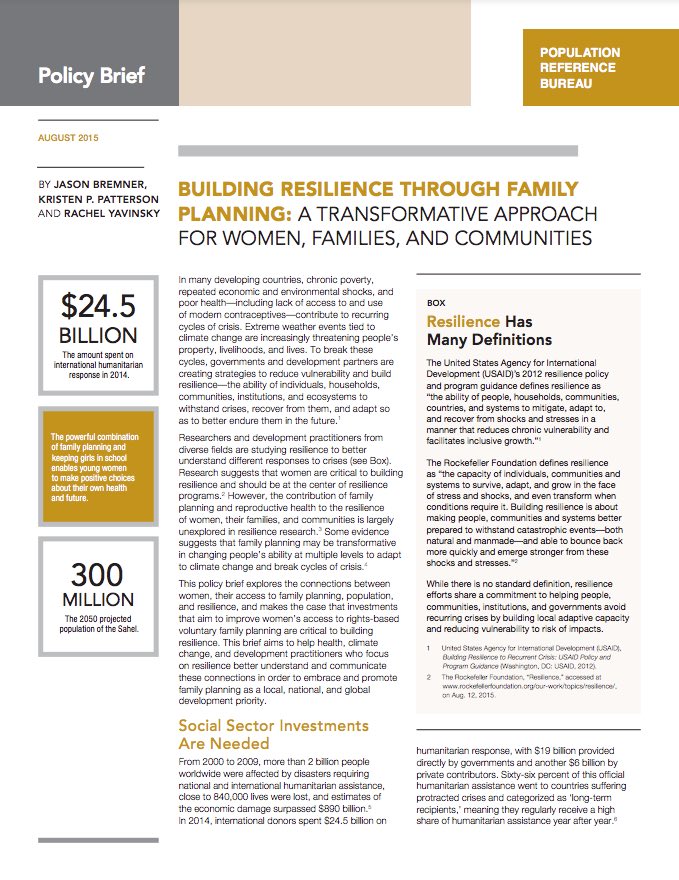
Building Resilience Through Family Planning: A Transformative Approach For Women, Families, and Communities
In many developing countries, chronic poverty, repeated economic and environmental shocks, and poor health—including lack of access to and use of modern contraceptives—contribute to recurring cycles of crisis. Extreme weather events tied to climate change are increasingly threatening people’s property, livelihoods, and lives. To break these cycles, governments and development partners are creating strategies to reduce vulnerability and build resilience—the ability of individuals, households, communities, institutions, and ecosystems to withstand crises, recover from them, and adapt so as to better endure them in the future.
Some evidence suggests that family planning may be transformative in changing people’s ability at multiple levels to adapt to climate change and break cycles of crisis. This policy brief explores the connections between women, their access to family planning, population, and resilience, and makes the case that investments that aim to improve women’s access to rights-based voluntary family planning are critical to building resilience. This brief aims to help health, climate change, and development practitioners who focus on resilience better understand and communicate these connections in order to embrace and promote family planning as a local, national, and global development priority.

 ">
">